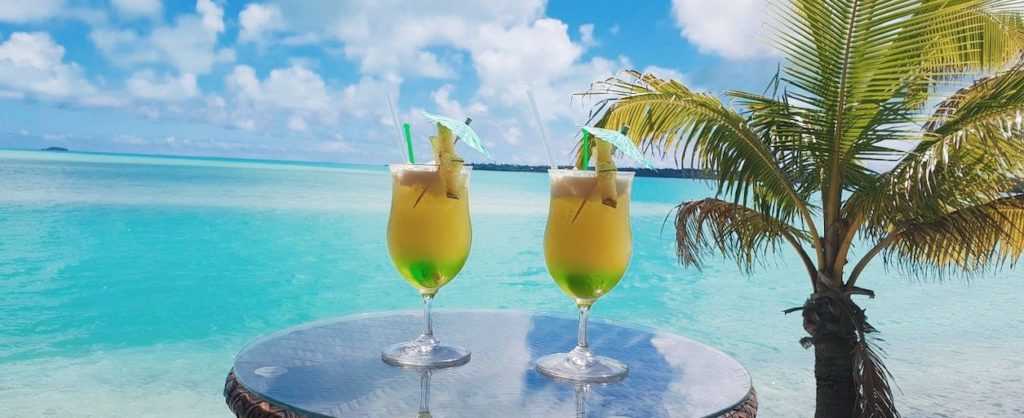Remember when you were a lot younger and you seemed to have all the time in the world, but no money? Perhaps as a kid, a teenager or a university student. Back then when you took a holiday it was most likely a long one, for at least a few weeks, and it always seemed to recharge your batteries and leave you feeling fully rested.
That was then. These days, our careers and lives are moving at the speed of light, full of opportunities that we can’t miss. Items on our to-do or bucket lists just seem to always back up and the latter rarely get ticked off. We all know the importance of good work/life balance and the importance of good mental well-being. No-one wants to burn-out due to overwork or over-stress.
You’ve most likely heard the expression “work hard, play hard”. You may even live your life by it. However, it can be a vicious cycle as you can get exhausted and tired even by playing hard. And as our lives get on, get busier and more complicated, there are fewer and fewer opportunities to recharge.
Let me show you some of the steps to help you make four days off feel like eight.
So how are you supposed to take a relaxing multi-week holiday in this environment? What if there was a way you could maximise your relaxing time?
In order to achieve that, I want to propose playing soft, not hard. Slow, yet exciting. It doesn’t need to be all the time, just in a way that fits and compliments your lifestyle and schedule. I propose you can take a slow-motion, restful and relaxing holiday, and do it all in limited time that you do have.
If you only have a few days, none of your time should be wasted and it should also be hassle-free. In this, it will be nothing like the long holidays you had in your younger days. Let me show you some of the steps to help you make four days off feel like eight.
Step 1: Find the right time
The ability to plan ahead is sometimes one of the biggest luxuries we have. To truly maximise your time off, you need to find the right time for it. Look for long weekends due to national holidays as an example. For the cost of one day of annual leave, turn a three-day long weekend into a four-day one. Check your work schedule and find the best time you can sneak away. Also, look at your personal calendar and see how that coincides with special occasions or the right season for a given activity.
Step 2: Remove all the hassle
This might sound obvious, but you really do need to spend some effort in making things easy. Assuming your ideal holiday is an airplane flight away, start by choosing the right flight. Based in the UK and want to surf in Australia? You need to realise that you’ll need two to three days just to recover from the flight. So choose something that is a bit closer to home, and close to what really resonates with you, be it sun, sand, cities, mountains or snow.
Flights under eight hours generally can be tolerated with minimal recovery time. If you can be doubly smart and also keep it within your current timezone, you’ll be even better off. Counter-intuitively, an 11 hour flight from London to Cape Town will feel more refreshing than a seven hour flight from New York to London.
Step 3: Research the venue’s level of service
Much like making the most out of getting there, you need to be equally careful about where you stay. The local Premier Inn might seem like a good option for the wallet, but remember your aim here is to have stress-free time off, and that can cost. One of the key things to look for in a venue to stay at is impeccable service. And I don’t mean the kind where the staff smile politely and simply say “good morning”. I mean the places where they seem to know your needs before you do, where each staff member knows who you are and works around you and your schedule. There aren’t many places around that do this, but they do exist! Think exclusive small boutiques like Vila Joya in the Algarve, or well-established luxury resorts like Four Seasons.
One of the best ways to determine how good the service will be is to have your needs and expectations clearly communicated to the venue before you even book. As part of this, you can get an idea of how responsive and competent the venue staff are. Do they understand you and what you’re after? Are you dealing with a single contact, or a chain of people who can perhaps miss details and get things wrong? If you feel they’re on the ball when talking to them beforehand, that usually translates to them being on the ball on site, too.
Step 4: Location, location, location
Where your venue is, and what it offers, is the next important thing to research. To go the truly hassle-free route, look at all-inclusive venues, where food, drink and activities (or inactivites if you just want to lay in a hammock all day) are part of your package. Alternatively, if you’re after a skiing holiday – how far away are the slopes? Can you open your door and walk to the lift (or better yet, straight to the piste), or is it a pain and a wait to get there? Or if you’re a golfer, there are many venues that either have direct access to courses or even their own private course. Compare that to another venue where you would need to drive (include the hassle of renting) or take public transport (don’t forget to include the waiting) with your clubs to the nearest course.
Step 5: Food and drink quality
To ensure you get the feeling of maximising your time, there must be excellent food and drink on the table. This is something that cannot be compromised on. The best way to ensure that you will get quality on your plate is by checking reviews. What does TripAdvisor say or Instagram show? And if not at the venue itself, is there anything good nearby? And while appreciated, you don’t need to go for Michelin star quality, just aim to avoid the burger and pizza places many of us end up in when on holidays.
Step 6: Find a reason to celebrate
If your holiday time coincides with an obvious celebratory event like a birthday or anniversary, then you’re doing great. But if not – find a reason. Be it an achievement at work, in your personal life, or a new goal at the gym. Use that reason as the basis of why you deserve this time off and why you should be relaxing during it. In your mind this will help justify why you’re going slow and make it more meaningful. If you want to go that one step further, organise something special and unique for your celebration. It also helps if the staff at the venue are aware that you are celebrating something, as they can often go above and beyond to make it more memorable.
Step 7: Add surprises
If you are travelling with a close friend or loved one, it is always worthwhile for the memories and excitement to find something to do that is a surprise. This could be a day trip, a fine dining experience or if you can pull it off, the entire holiday itself. Don’t be afraid to ask the venue staff for suggestions here – often they can help you pull off the surprise, too. If however you are holidaying by yourself, you can still be surprised by joining local tours, dinner groups or just finding the nearest bar and seeing where the night takes you. Nothing better than making new friends with similar interests in an exotic location.
Step 8: Find a local cooking class
Making a meal when there’s no time pressure and in a safe and supervised environment can be one of the most rewarding activities, especially in this day and age of fast food and instant meals. A local class will also allow you to immerse yourself in the local culture and take home a new skill as well as a great story. This will enhance your time away and can usually be combined with other activities such as dinner or sightseeing. Read more about the benefits of experiencing a local cooking class in my other article.
Step 9: Delegate
Perhaps in your professional environment you do not have the time to do everything yourself, so you rely on experts around you and delegate tasks to them, safe in the knowledge that those tasks will be done well. Organising a holiday is much the same. Like in work, there are degrees of who and what can be delegated. Some brands, like Four Seasons, offer completely organised experiences that include all flights and meals. Others will help you with some of the basics. A lot of this depends on you and what level of control you’re comfortable giving up. However one key tip is to always listen to local knowledge and, where possible, let them organise for you.
Step 10: Document your trip
While you don’t need to take a selfie every ten paces, documenting your trip with photos or videos is a great way to relive the time, location and experiences you had later on. This will help ensure that your holiday was not only maximised while you were there, but also in the days, months and years that follow.
In summary, it is possible to maximise your time and spend three to four days away to come back home feeling refreshed and recharged. Can this be done on a budget? Not so much. In order to have everything in place around you to ensure you get the relaxing atmosphere you deserve will cost. But you should think of it as a way of getting the energy to perform in your professional and personal life at peak capacity for the next six months at least. Surely that covers the cost and is true value for money.
So when is your next long weekend and what do you have planned? Can you implement some of these steps? Comment below this article – we would love to hear from you!

